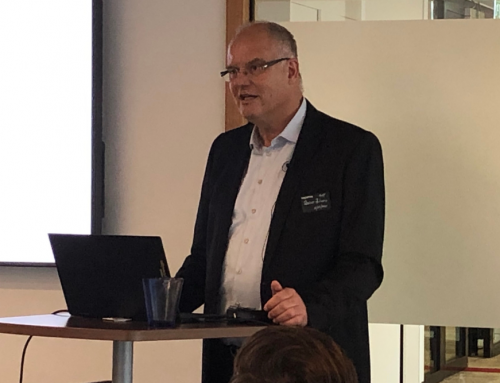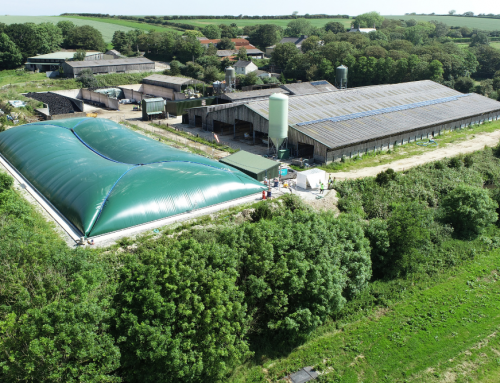Everything You Ever Wanted To Know About Cloud ERP Systems Part 2
Last time…
In Part 1 of Everything you ever wanted to know about cloud ERP, we found out that an enterprise resource planning system (ERP) is a complete, integrated system that manages all aspects of a business. Their key strength is the way they align financial management with all the other functions of a business from project management to supply chain and human resources.
ERP systems give a key overview to managers – providing end to end transparency by linking and tracking everything via one data base.
All departments can view the information, reducing the need for multiple pieces of software and repeated data entry.
Cloud First
An ERP system in the cloud is much more flexible than on-premise because it can be accessed via the internet from wherever you are. With real-time data at your finger-tips you can make better management decisions AND with no on-premise hardware or IT specialists required, you will save money.
The top reasons businesses use ERP
- Centralize business activities in one system
- A single data base reduces errors and provides a single source of truth
- Ends lack of integration between several solutions
- Reporting and analytics available from one central location
- Increased collaboration between departments
How to choose the right ERP for your business
With so many different ERP solutions on the market, it may help to answer these 5 questions to make sure you get the right solution for you:
- What is your industry sector? A lot of ERP solutions genuinely do suit a wide range of sectors but there are also specialised packages out there which are worth looking into.
- What size is your business? Many ERPs have been designed with a specific business size in mind. If you are impressed by a particular brand you can enquire which products they recommend for small, medium or large enterprise sized business.
- What are your needs? Some people have a long shopping list of requirements but for others they simply want a reliable finance module which can be implemented quickly. Whatever you want, it is out there for you – the clearer you are about it the better!
- You can then go on to ask; which of these needs on my list are non-negotiable? This will help you narrow it down.
- What is your time scale? Some vendors can implement an out-of-the-box solutions in as little as 8-12 weeks – so tell potential partners up front if speed is important to you. Likewise, some businesses have the luxury of time but require lengthy customisations. Which are you?
Getting good answers to these questions will help you determine which ERP is going to suit you best.
How to choose the right partner
Choosing the right partner to work with is almost as important as the solution itself. Here’s why…
A good partner is;
a) more than a sales person
b) more than someone who implements your solution.
The people you choose to work with can make or break your project. Get it right and they will become trusted advisors – get it wrong and you will be left with a solution that is badly set up, based on badly thought out processes. In a scenario we see all too often, staff are left trying to work round a system they don’t know how to use and you are left paying for it.
To help you choose a good partner, here are some of the qualities you need to look out for.
- They are deeply knowledgeable and offer specialist consultants in the areas that matter to you.
- They have project managers with a lot of experience who can advise you on the best workflows and processes for good outcomes.
- They know the solution inside out and will not only teach you how to use it but can advise on how to get the best out of it on a daily basis.
- They understand your business and take into account where you want to be as well as where you are when putting together your solution plans.
- They have a clear process for ongoing support and resolving problems swiftly.
Issues you should be aware of
To ensure the success of an ERP implementation there are several factors you need to take into consideration.
Time for a change
There’s no two ways about it, introducing ERP for the first time or upgrading to the cloud, can involve a lot of change.
Even before you get to the point of selecting an ERP system or a partner to work with, you may need to look at making changes to your business processes, known as business process re-engineering.
Business Process Re-engineering
This has been popular in the past and is still carried out when creating bespoke systems but modern ERP partners today tend to approach things slightly differently. First we find out which features of the solution might provide benefits and improvements to the customer. Then, if they like the look and feel of the solution and want the features it contains, we move on to the implementation stage. At this point we walk the Key Users through the ‘best practice’ business flows and encourage them to change their old methods. When their processes fit with the pre-configured standard they will get the best and most effective usage from the solution. This will then allow them to capitalise on the features that are going to create value.
Companies that take the time to work with their partners and listen to their advice usually end up with a faster implementation while minimizing extra costs.
Adopting a Change Management Strategy
Building a strong team with a clear purpose is vital to managing change. When people understand why change is happening and what it involves, there is much better buy in. In our experience the most successful ERP Implementations are carried out by enthusiastic teams that are good at communicating change. With strong, passionate advocates involved, the process is quicker and the end users are more confident – there is also a much lower impact on your productivity.
What to expect from implementation
An ERP implementation involves installing the software, moving your financial data over to the new system, configuring your users and processes, and training your users on the system. Different software brands will have their own tried and tested implementation methodologies which they can talk you through. See our own implementation guide here.
Most implementation plans will involve these 6 stages. Discovery and Planning, Design, Development, Testing, Deployment, and Ongoing Support.
Training and Support
Training requires an investment of time, money, and effort, but the results are worth it. As employees learn more about their roles and get comfortable with the bits of the system they need to use, they will become more confident and less resistant to change.
Support from your partner is also vital if you want to carry on getting the most from your ERP system into the future. You will need to look at the support package your vendor offers and also the attached costs.
When considering support, remember that ERP is best thought of as an on-going journey. No business stands still and there will always be new things to learn. Can your partner help you find information quickly, show you short cuts and keep you on top of latest developments? They can if you choose wisely!
Take a look at our one pager on 3 ways we support our ERP users.
Working towards the future
Running an intelligent enterprise, powered by cloud ERP, can protect your business from becoming outdated. The best software companies are constantly at work behind the scenes finding ways to bring the latest buzz word technologies to life.
For example; you can now simulate outcomes from a range of different options, use smart analytics to recognise unseen patterns or use voice recognition to pull up reports at your busiest times. Machine learning is already having a big impact on the way companies deal with invoices – scanning names and numbers, extracting the relevant information and removing the need for manual data entry – speeding up the whole process.
The best technology companies are always looking for innovations that drive genuine value. By choosing a software provider with this reputation you can future-proof your system via regular cloud updates – this way you will always be on the latest version. If you want to take a look at a company’s future plans – request their product road maps – most companies have them.
A word on InCloud Solutions
We have deliberately tried to keep this guide as product agnostic as possible. Nobody wants to be sold to while they research their options. However, in case you are interested to know just a little about us, we are leading UK specialists in the Cloud ERP solution for mid-sized companies – SAP Business ByDesign. We pride ourselves on the depth of our expertise in the solution and the strength of our on-going relationship with our customers. Do please get in touch if you would like to ask us more. Talk to [email protected] and she will be able to find you the right expert to help.
If you missed it, catch up with Part 1 of this series here Everything you ever wanted to know about Cloud ERP.












Leave A Comment